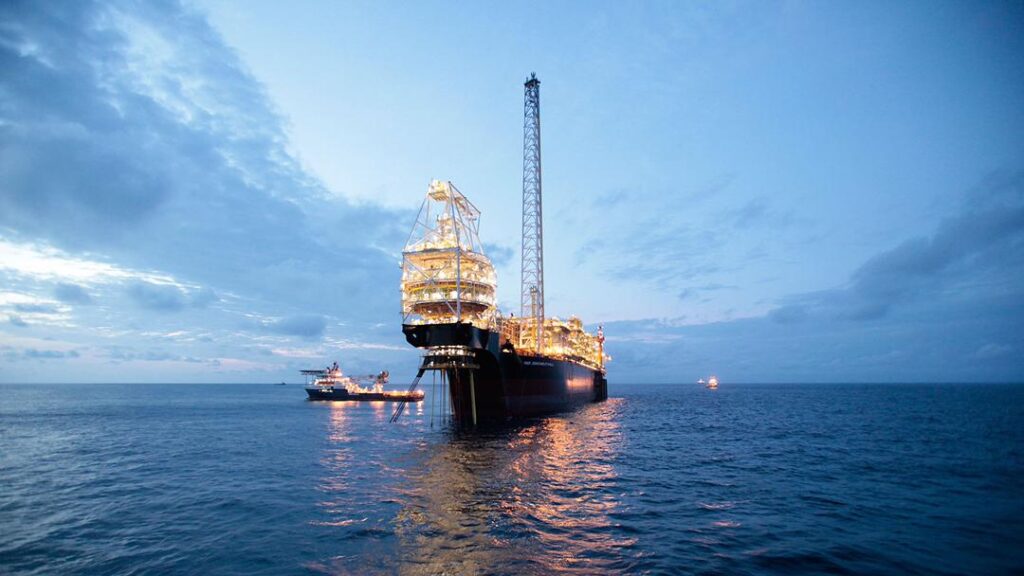
The government should avoid giving wholesale fiscal tax incentives to certain oil companies operating in the country’s oil fields, Nasir Alfa Mohammed, Vice Chair of the Public Interest and Accountability Committee (PIAC), said here.
His comments come on the back of complaints that Ghana is getting little from the exploration of oil and gas resources in the country.
The government, he explained, had to give wholesale tax incentives to attract oil companies into the country at the initial stages of oil exploration in 2004.
The situation, he stressed, has now changed and urged the government to reconsider the fiscal regime Ghana put in place for investors by avoiding wholesale incentives to companies in order not to lose out in the oil business.
“First of all, the regime before oil discovery was that our petroleum basins were generally risky; we didn’t have so much investment in the petroleum basins of Ghana; and in order to be able to attract that investment, we needed to have incentives that would incentivize investors to come in and help us,” Mohammed told Xinhua in an interview.
“Currently, you can say that our offshore basins have been relatively less risky, Ghana is now seen as being one of the countries that is good for people to come and do oil and gas business, and it has been the argument of some of us that the government should as much as possible reduce the fiscal incentives we give to certain oil companies,” he said.
The PIAC Vice Chair further asked the government to work out modalities to encourage a lot more Ghanaians to enter into the oil and gas business.
The Ghana Local Content and Local Participation law, passed in November 2013, stipulates that Ghanaians should be prioritized in terms of employment in the petroleum industry and should benefit from the country’s resources.
The law is expected to ensure that Ghana’s natural resources benefit Ghanaians while also allowing foreign oil companies to reap fair returns on their investment.
“I will also urge the government to encourage Ghanaians to enter into the oil and gas industry more through our local content regime.” “We already have a 5 percent mandatory equity participation of indigenous Ghanaian companies, but it is difficult for indigenous Ghanaian companies to raise capital to partner with their international counterparts, so more often than not, you will see foreigners doing it and benefiting, so there are a couple of things we can do to help,” Mohammed added.
Petroleum development in Ghana began at the turn of the 20th century. In the early 1900s, both the Tano and Keta basins had small-scale oil developments, and the Saltpond field has been in production since the 1970s.
In the quest to find oil, the government sold licences to different international companies for offshore oil exploration and production in 2004.
In July 2007, Tullow Oil and Kosmos Energy discovered oil in commercial quantities in the western region of Ghana and named the area Jubilee Field.
The country became a full-blown commercial oil and gas producer with the discovery of the offshore Jubilee Field, which is estimated to hold some 700 million barrels of oil (MMbbl) and 800 billion cubic feet (Bcf) of gas. Development of the production site started right away, and in December 2010, oil production officially commenced.
Since the Jubilee field reached first oil in 2010, there has been the development of two subsequent new offshore projects in Ghana. Production of the first project, the Tweneboa, Enyenra, and Ntomme (TEN) fields, with an estimated 240 MMbbl and 396 Bcf of gas, started in August 2016. The second project, the Sankofa and Gye Nyame fields, with an estimated 500 MMbbl and 1.45 trillion cubic feet of gas, started production in May 2017.
Currently, the Jubilee partners are Tullow Oil Ghana (35.48%), Kosmos Energy (24.08%), Anadarko (24.08%), Ghana National Petroleum Corporation (GNPC) (13.64%), and Petro SA (2.73%).
The TEN fields are operated by Tullow Oil Ghana (47.18%), with partners Kosmos Energy (17%), Anadarko (17%), GNPC (15%), and Petro SA (3.82%).
The third and last field, the Sankofa field, also known as the Offshore Cape Three Points, an integrated oil and gas development project, is operated by Eni (44.44%) with partners Vitol (35.56%) and GNPC (20%).
Source:Ghana govt must cut down wholesale fiscal incentives in oil field – PIAC Vice Chair | News Ghana
